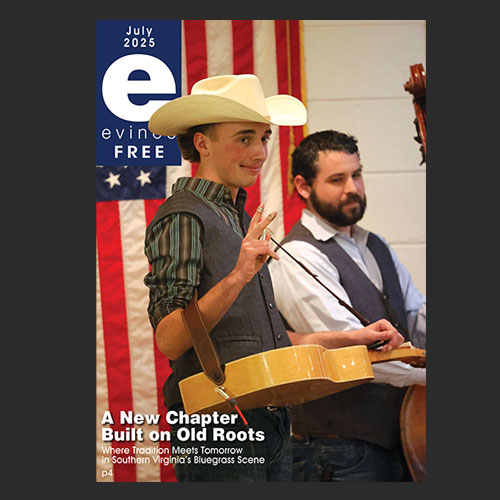(Scene: Plant and Linda are sitting in morning sunlight on Linda’s back porch. In a birdhouse, a bird is feeding its young.)
Plant: What is it like to have a mother?
Linda: You never give me any warning about when you’re going to start talking. You just start.
P: Does that bother you?
L: You ask me open-ended questions that force me to think.
P: I could just be silent like all the other plants you own.
L: You’re constitutionally incapable of silent contemplation.
P: We get more heavy lifting done when we are conversing. Answer the question.
L: A mother is love.
P: You had trouble defining love several months ago. Your responses, past and current, on that topic and this one, are inadequate.
L: Don’t judge me… a mother takes care of children. To be fair, in a two-parent household, the mother and father often work together to raise children. Sometimes one parent is single parenting. In this case, regardless of household, we’re talking about mothers taking care of children.
P: I do not have children. I cannot relate.
L: I take care of you.
P: In case you have not noticed, I am a plant. Not much care required. I just need a little water, sun, dirt. And conversation.
L: Snarky response, Plant. And you require a lot of conversation.
P: Conversation leads to growth which is uncomfortable.
L: Is growth as uncomfortable for you as the questioner as it is for me as the questionee?
P: Less uncomfortable after I pry answers out of you.
L: Like a mother with adolescent children. Mom asks questions in her roles as teacher, coach, nurturer, protector, provider, guide. Adolescence means kids don’t answer, assume parents have subnormal intelligence, are prone to over-reaction, begin to pull away.
P: The mother probably feels frustrated. Like me in this conversation.
L: But she loves them anyway. In healthy families, it doesn’t matter whether she birthed or adopted them: She nurtures them all, like the mother bird outside.
P: They are part of her chosen nuclear world.
L: Yes.
P: So important that she takes care of them as well as she can.
L: Correct.
P: Food, water, home, love.
L: Sure.
P: Experiences that help them grow.
L: Within reason.
P: Define reason.
L: Let’s be thought-provokingly indirect. I think of Maslow’s list of needs. Maslow theorized that there were basic and higher level needs to be met: biologic and physiologic, safety, love and belonging, esteem, self-actualization. A more recent list included, after esteem, cognitive and aesthetic, and after self-actualization, transcendence.
P: This is like you defining love all over again. You are just giving me theory.
L: In the expanded list, the first four are “deficiency” needs; the rest are “growth” or “being” needs; all stretch over a lifetime.
P: What does this have to do with mothers?
L: Who’s often in charge of the child during the early years in a two-parent household?
P: …The mother…
L: So, who’s making sure that all the “deficiency” and “being” needs are met during the time the child is growing up?
P: The mother …
L: … Along with help from family and friends, school system, religious community, and other communities.
P: Your point about Maslow’s need theories?
L: It’s important for child development that early needs are met, that later needs are met, too. And mothers aren’t usually trained in child-rearing. They just do their best under the conditions they have—family-related, functional, financial, social, emotional, environmental, whatever. That’s really the motherlode here.
P: Mothers need help from the extended community.
L: Right. It takes a village.
P: And they get help if they need it.
L: Yes, but they have to ask.
P: Like we all do, to understand what we do not understand or achieve what we want to achieve.
L: You’re sounding like a mother.
P: Maybe we mother each other.
L: Or maybe we just quibble over definitions until we’re both exhausted.
P: I am so looking forward to the next skirmish.
About the Author: Happy Mother’s Day to Evince readers from Plant and Linda Lemery llemery@gmail.com. Both welcome reader comments.






